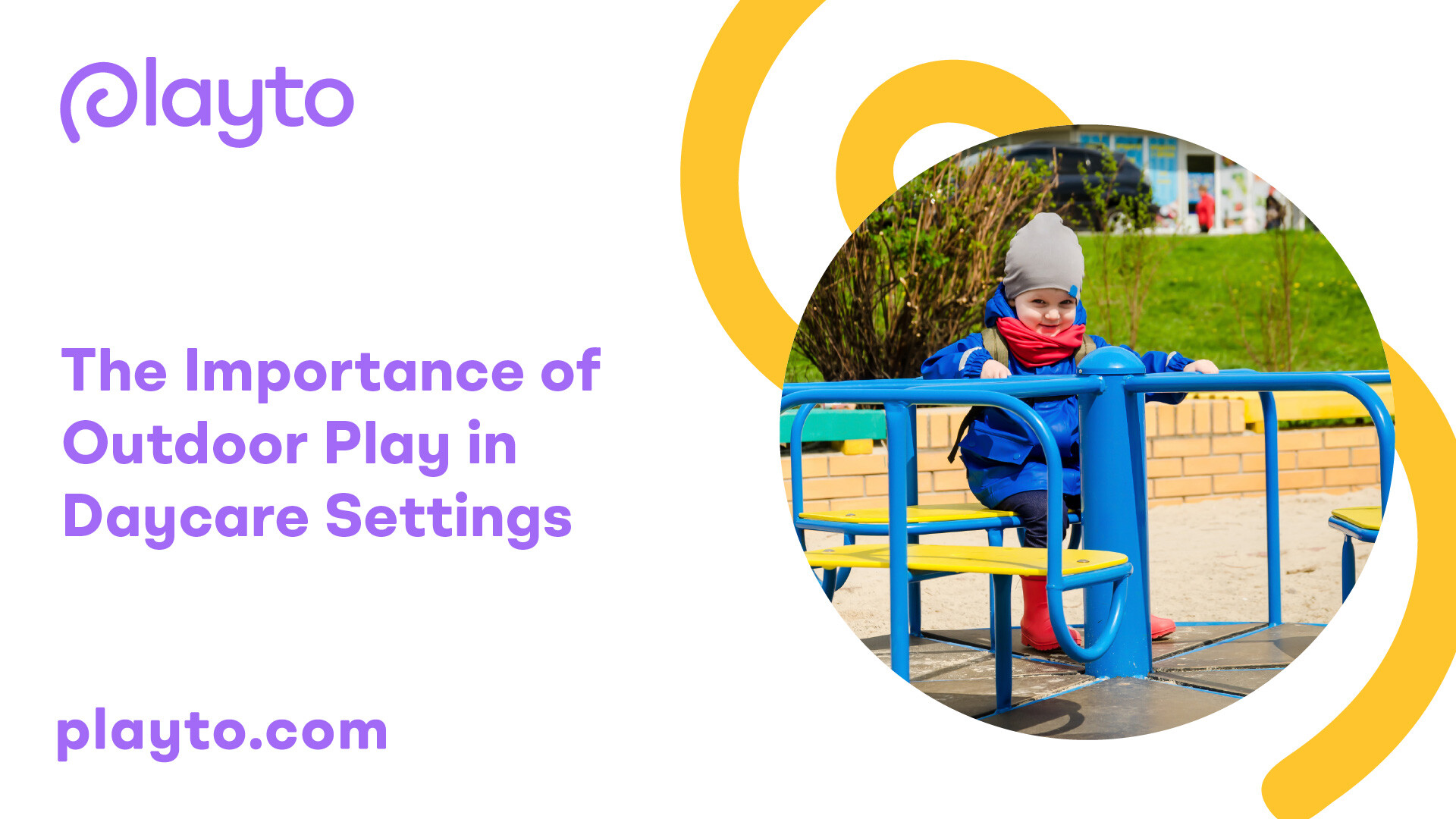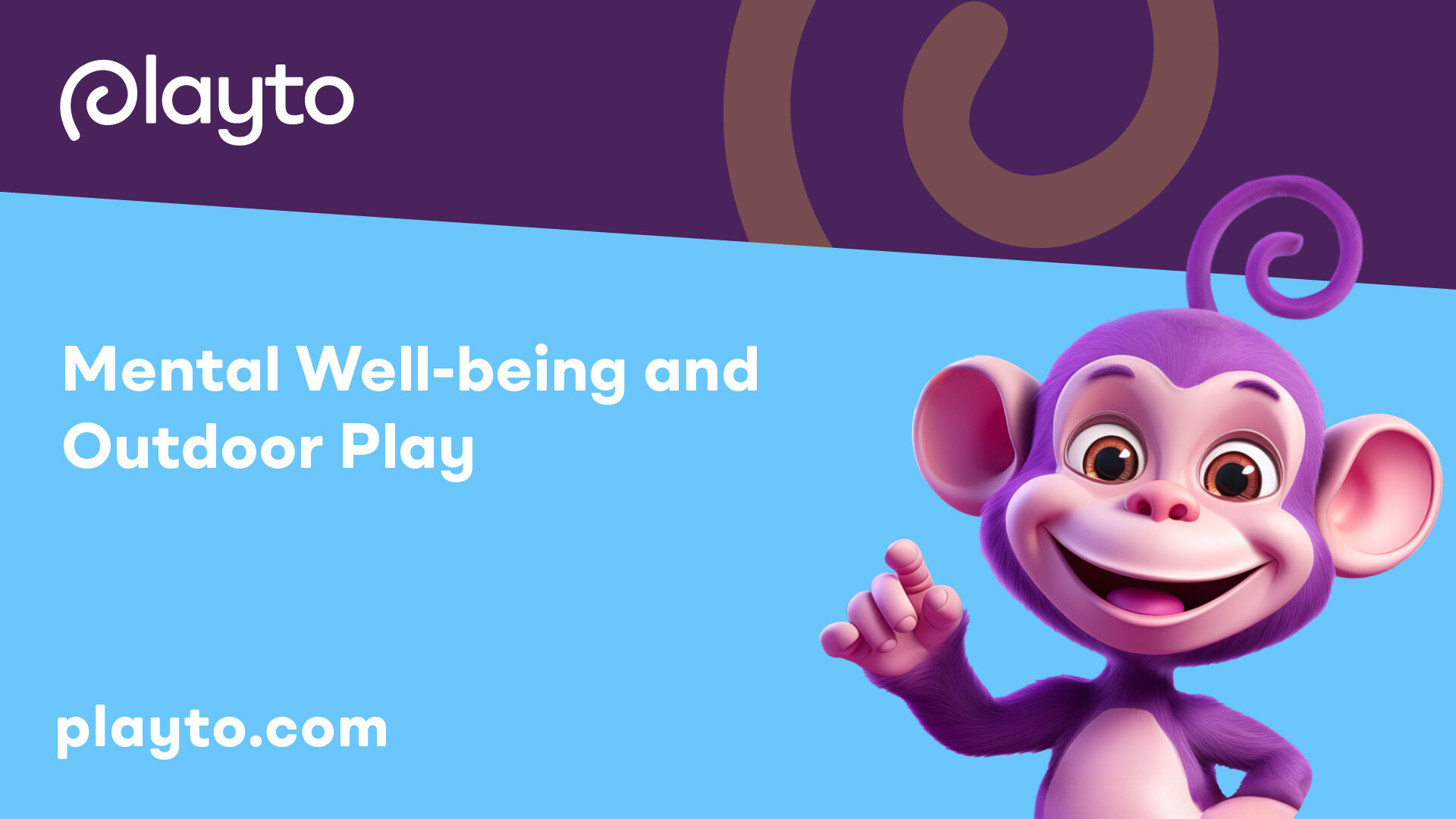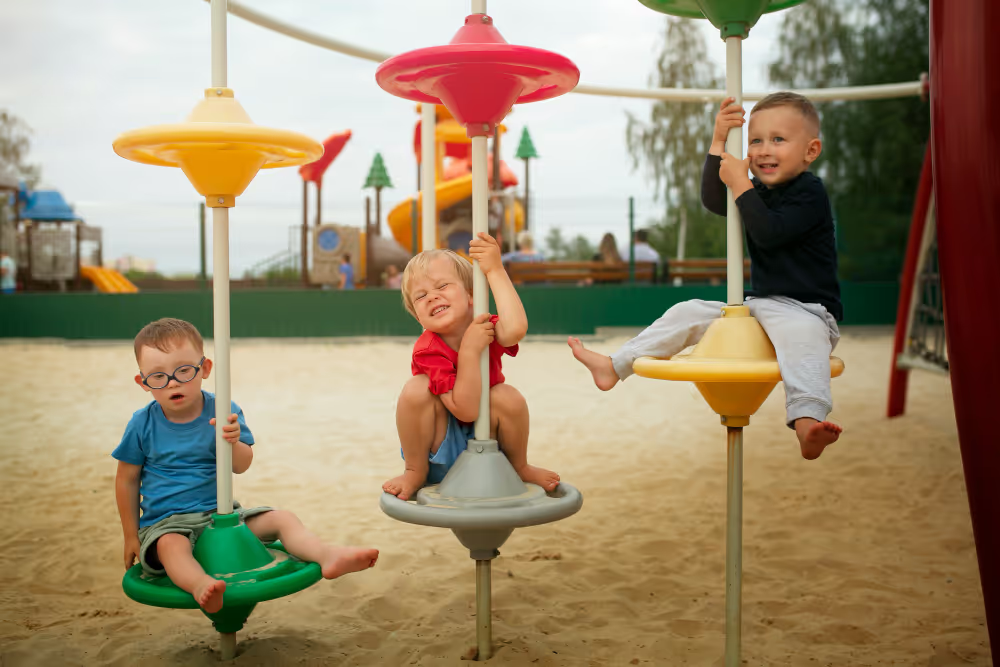Benefits of Outdoor Play in Daycare
Outdoor play in daycare settings offers numerous benefits for children's development and overall well-being. It provides opportunities for physical development and offers various health benefits.

Physical Development Through Outdoor Play
Engaging in outdoor play allows children to explore the natural environment, test their physical limits, and develop their motor skills Raising Children Network. Activities such as running, jumping, kicking, and throwing help improve coordination, balance, and strength. Regular physical activities during outdoor play contribute to children's fitness and overall physical development.
Health Benefits of Outdoor Play
Spending time outdoors exposes children to natural sunlight, which is essential for their overall health. Sunlight exposure helps the body produce vitamin D, which promotes healthy bone and muscle development Raising Children Network. Adequate vitamin D levels are crucial for children's growth and can potentially lower the risk of developing short-sightedness.
Outdoor play also contributes to children's mental well-being. Being in natural environments helps children relax, feel calm, and improve their mental health. It offers a change of scenery from indoor environments and allows children to connect with nature, fostering a sense of wonder and curiosity.
By incorporating outdoor play into daycare routines, children have opportunities to engage in physical activities, explore their surroundings, and enjoy the benefits of being in nature. It is essential for daycare centers to provide safe and stimulating outdoor spaces to facilitate children's physical development and overall health.
To learn more about the benefits of outdoor play in daycare, continue reading our articles on the socialization benefits of daycare for toddlers and how daycare supports working parents.
Mental Well-being and Outdoor Play
In addition to the physical benefits, outdoor play in daycare settings also plays a vital role in promoting mental well-being among children. This section will explore the emotional benefits of outdoor play and its impact on cognitive development.

Emotional Benefits of Outdoor Play
Spending time outdoors in natural environments has a positive impact on children's emotional well-being. It provides an opportunity for children to relax, feel calm, and improve their mental health and well-being. Research suggests that increased childhood exposure to fresh air and green spaces is associated with better mental health later in life. Children who grow up in areas with more green space have a lower risk of developing psychiatric disorders [2].
Outdoor play allows children to reduce stress levels and mentally relax, helping restore concentration and focus. It has been proven to lower cortisol levels in the brain, which is known as the "stress hormone". By immersing themselves in nature, children can experience a sense of calmness and tranquility, enhancing their emotional well-being.
Cognitive Development and Outdoor Play
Engaging in outdoor play also has a significant impact on cognitive development in children. Learning in contact with nature has been shown to reduce anxiety, increase overall well-being, and enhance feelings of self-efficacy and self-esteem. The sensory experiences and varied stimuli provided by the outdoor environment stimulate cognitive processes, including problem-solving, creativity, and critical thinking.
Outdoor play promotes cognitive development by encouraging exploration, discovery, and curiosity. Children have the opportunity to engage in imaginative play, where they can create scenarios, devise solutions, and develop their communication skills. The open-ended nature of outdoor play allows children to exercise their cognitive abilities and expand their mental capacities.
By offering a diverse range of experiences, such as climbing, running, and balancing, outdoor play supports the development of fine and gross motor skills. These physical activities enhance brain function and promote cognitive skills like coordination, spatial awareness, and concentration.
Incorporating outdoor play into daycare settings not only nurtures children's emotional well-being but also stimulates cognitive growth. By providing opportunities for children to explore nature, engage in imaginative play, and develop their cognitive abilities, daycare centers can create a holistic environment that supports the overall development of children.
Importance of Vitamin D in Outdoor Play
When it comes to outdoor play in daycare settings, one of the crucial factors to consider is the importance of vitamin D. Sunlight exposure plays a vital role in various aspects of children's health, including their immune system, bone, and muscle health.

Sunlight Exposure and Immune System
Spending time outdoors exposes children to natural sunlight, which can have a positive impact on their immune system. Sunlight is a valuable source of vitamin D, which aids in immune system development and helps protect against certain diseases and infections. According to the Children's Museum of Sonoma County, vitamin D obtained from sun exposure during outdoor play contributes to immune system development, ensuring a healthier and more robust defense against illnesses.
Bone and Muscle Health
Another crucial aspect of vitamin D is its role in promoting strong bone and muscle health. Sunlight exposure helps the body produce vitamin D, which is essential for the absorption of calcium and phosphorus, crucial minerals for bone development and strength. Adequate levels of vitamin D contribute to healthy bone growth, reducing the risk of conditions like rickets and osteoporosis later in life.
In addition to bone health, vitamin D also supports muscle health and function. It plays a role in muscle development and helps maintain proper muscle strength. Children who engage in outdoor play and receive ample sunlight exposure are more likely to have optimal levels of vitamin D, supporting their overall bone and muscle health.
To ensure children receive sufficient vitamin D, it's important to encourage outdoor playtime in daycare settings. However, it's crucial to balance sun exposure with sun safety measures, such as applying sunscreen and providing shade when needed. By promoting outdoor play while adhering to sun safety guidelines, daycare centers can help children reap the benefits of vitamin D for their immune system, bone, and muscle health.
In addition to the importance of vitamin D, outdoor play offers numerous other benefits for children's physical and mental well-being. To explore these benefits further, refer to the other sections of this article, such as the physical development through outdoor play and emotional benefits of outdoor play.
Social Skills and Outdoor Play
Engaging in outdoor play in daycare settings offers numerous benefits, including the development of social skills. These social skills play a crucial role in a child's overall growth and development, fostering confidence, independence, and positive relationships.
Building Confidence and Independence
Outdoor play provides children with opportunities to explore their surroundings, take risks, and overcome challenges, thereby building their confidence and independence. When children engage in outdoor activities, such as climbing, running, or playing on playground equipment, they learn to assess risks, make decisions, and problem-solve. Through these experiences, children develop a sense of accomplishment and self-assurance, which contributes to their overall well-being.
Social Interaction and Communication
Outdoor play also facilitates social interaction and communication among children. When children engage in group activities or play on playgrounds, they learn to negotiate, cooperate, and share with their peers. These social interactions help children develop important social skills, such as taking turns, resolving conflicts, and practicing empathy. As children interact and communicate with one another during outdoor play, they develop the building blocks for meaningful relationships and positive social connections.
Encouraging outdoor play in daycare settings provides children with the opportunity to engage in unstructured play, where they can freely interact with their peers. This type of play fosters creativity, imagination, and problem-solving skills. As children collaborate and engage in pretend play or group activities outdoors, they learn to communicate effectively, express their ideas, and understand the perspectives of others, enhancing their social skills.
By promoting outdoor play in daycare settings, educators and parents can actively support the development of children's social skills. Creating a safe and stimulating outdoor environment where children can freely explore, interact, and communicate with their peers fosters the growth of confident, independent, and socially adept individuals.
To learn more about the benefits of outdoor play in daycare settings, you may also be interested in our article on the socialization benefits of daycare for toddlers.
Cognitive Benefits of Outdoor Play
Engaging in outdoor play not only promotes physical development but also provides numerous cognitive benefits for children in daycare settings. This section will explore two key areas of cognitive development that are enhanced through outdoor play: motor skill development and cognitive skills enhancement.
Motor Skill Development
Outdoor play helps children develop essential motor skills, such as coordination, agility, balance, and dexterity. It provides opportunities for children to engage in various physical activities that require the use of these skills. For example, climbing on playground structures, running, jumping, and playing ball games all contribute to the development of these motor skills.
By exploring their environment, children learn to navigate obstacles, coordinate their movements, and improve their overall control over their bodies. These physical challenges during outdoor play allow children to constantly develop new skills through trial and error. Whether it's climbing a tree or riding a bike, children are continually refining their motor skills and building confidence in their physical abilities.
For more information on daycare, check out our related articles on how daycare supports working parents, dealing with separation anxiety in daycare children, socialization benefits of daycare for toddlers and nutrition guidelines for daycare centers.
Cognitive Skills Enhancement
In addition to motor skill development, outdoor play also enhances cognitive skills in children. The outdoor environment stimulates their senses and provides rich opportunities for exploration and discovery. Children engage in imaginative play, problem-solving, and decision-making, which contribute to cognitive development.
The open-ended nature of outdoor play allows children to use their creativity and imagination. They can create games, build structures, and explore the natural world around them. These activities encourage critical thinking, spatial awareness, and problem-solving skills. For example, when building a fort or navigating a nature trail, children must think strategically and plan their actions.
Moreover, outdoor play promotes sensory integration as children experience different textures, sounds, sights, and smells in the natural environment. This sensory input helps children develop their sensory processing skills, which are essential for learning and cognitive development.
By engaging in outdoor play, children in daycare settings have the opportunity to enhance their motor skills and cognitive abilities simultaneously. The combination of physical activity and cognitive stimulation fosters holistic development and lays the foundation for lifelong learning.
As children engage in outdoor play, they also benefit from the socialization opportunities it provides. The next section will explore how outdoor play in daycare settings contributes to the development of social skills, confidence, and independence. For more information on the benefits of daycare for children, check out our article on the socialization benefits of daycare for toddlers.
Long-Term Impact of Outdoor Play
Encouraging outdoor play in daycare settings can have a lasting impact on children, shaping their habits and skills as they grow. Let's explore two key areas where outdoor play can have a long-term influence: establishing healthy lifestyle habits and developing self-awareness and reasoning skills.
Establishing Healthy Lifestyle Habits
Engaging in outdoor play during early childhood sets the foundation for a healthy and active lifestyle in adulthood. Children who are active and enjoy outdoor play are more likely to maintain an energetic lifestyle as they grow up [2]. Regular physical activity during childhood has been linked to a lower risk of obesity and related health issues.
By encouraging outdoor play in daycare settings, children develop a positive attitude towards being active and understand the importance of physical activity. They learn to appreciate the benefits of exercise and are more likely to engage in regular physical activities throughout their lives. This can contribute to maintaining a healthy weight, reducing the risk of chronic diseases, and promoting overall well-being.
Self-Awareness and Reasoning Skills
Outdoor play provides children with opportunities for self-discovery and the development of important cognitive skills. Through exploring natural environments, children learn to navigate, problem-solve, and make decisions. They engage their senses, observe patterns, and explore cause and effect relationships [4].
During outdoor play, children encounter various challenges and obstacles that require them to think critically and find creative solutions. This fosters the development of reasoning skills and enhances their ability to analyze situations and make informed decisions.
Furthermore, outdoor play encourages self-awareness as children learn about their own capabilities, strengths, and limitations. They gain confidence in their abilities and develop a sense of independence as they explore their environment and engage in activities that challenge them.
By providing ample opportunities for outdoor play in daycare settings, children can develop valuable cognitive skills, become more self-aware, and build a foundation for lifelong learning and problem-solving.
Through establishing healthy lifestyle habits and fostering self-awareness and reasoning skills, outdoor play in daycare settings has a long-lasting impact on children's overall development. It sets the stage for a physically active and mentally agile future, contributing to their well-being and success in various aspects of life.
